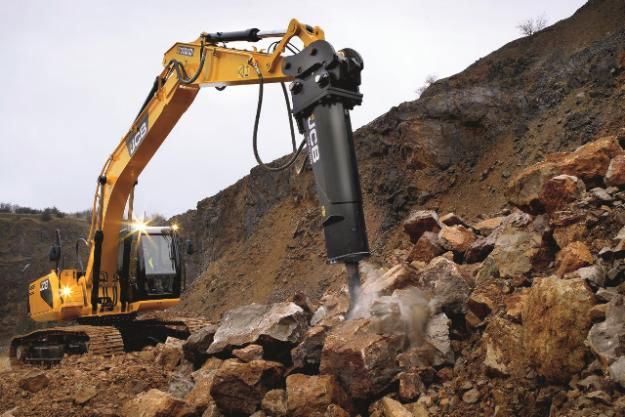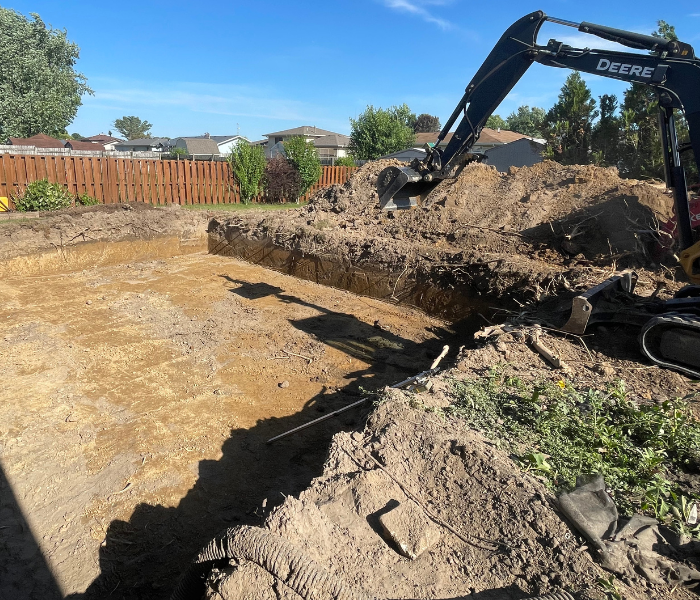Ideal Dump Truck Companies in Ohio - Top-Rated Dump Truck Providers
Comprehensive Excavation Approaches: Grasping the Principles for Success
In the world of building and construction and civil design, the importance of efficient excavation approaches can not be overstated. The mindful preparation, precise execution, and careful focus to detail needed in excavation projects demand a thorough strategy that encompasses different essential aspects. From first dirt evaluation to the implementation of security procedures and regular progress surveillance, mastering these core components is essential for attaining success in any type of excavation undertaking. The real mastery exists not merely in understanding these principles but in seamlessly incorporating them to browse the intricacies of excavation tasks with finesse.
Recognizing Excavation Project Planning

The initial stage of any type of excavation project is the preparation phase, where crucial decisions are made that can considerably impact the result of the project. Understanding the task extent, budget, and timeline restraints is essential for producing an extensive excavation plan that makes sure the project's success.
One secret element of excavation project preparation is the advancement of an in-depth timeline that outlines the series of deadlines, milestones, and tasks. By carefully considering all these variables during the planning stage, excavation jobs can be performed successfully and successfully, leading to successful outcomes - lancaster trenching.
Dirt Evaluation and Website Examination
Performing extensive soil evaluation and site examination is an important action in the preparation stage of any excavation job. Soil analysis involves identifying the composition, structure, and buildings of the dirt at the excavation site. This info is essential for understanding the soil's bearing ability, moisture content, and potential for erosion, which are crucial consider identifying the excavation techniques and devices required for the project.
Website assessment exceeds dirt evaluation and includes a wider assessment of the general website conditions. This examination consists of determining any kind of possible threats, such as underground utilities, environmental issues, or unstable surface, that might impact the excavation procedure. By thoroughly examining the website, job managers can create reliable excavation strategies that focus on safety, efficiency, and environmental defense.
Making use of innovative innovations like ground-penetrating radar, soil sampling, and drone surveys can improve the precision and effectiveness of soil evaluation and website assessment. Investing time and sources in these preliminary actions can inevitably save time and prevent costly delays or issues throughout the excavation process.
Devices Selection and Use
Effective excavation jobs count heavily on critical devices option and usage to guarantee ideal performance and efficiency. Picking the appropriate equipment for the task is crucial in making the most of efficiency and decreasing like it downtime. Elements such as the kind of soil, deepness of excavation, and task range play a considerable function in identifying one of the most appropriate tools for the job handy.

Along with choosing the suitable equipment, correct utilization is essential to task success. Operators needs to be educated to handle the devices safely and efficiently - lancaster trenching. Normal maintenance checks and prompt repair services aid protect against breakdowns and ensure constant efficiency throughout the job
Precaution and Rules Compliance
In the world of excavation jobs, focusing on safety and security procedures and compliance with guidelines is paramount to making sure a legally audio and secure functional environment. Security actions encompass a series of methods, including carrying out complete site assessments, executing appropriate signs and obstacles, and giving appropriate safety training for all workers entailed in the excavation process. Adherence to laws, such as OSHA needs in the United States, guarantees that the excavation project fulfills the required standards to safeguard workers, bystanders, and the surrounding setting.

Surveillance Progress and Adjusting Strategies
How can forecast supervisors properly track the improvement of excavation tasks and adjust their strategies appropriately to optimize results? Tracking development is essential for making sure that excavation tasks stay on track and fulfill deadlines.
Final Thought
Finally, grasping the basics of detailed excavation methods is essential for the success of any project. By understanding task planning, evaluating soil and site problems, choosing proper tools, conforming with safety and security regulations, and keeping track of progress, project managers can make sure a smooth and reliable excavation procedure. visit this web-site Carrying out these techniques will certainly result in effective outcomes and lessen potential threats or problems throughout the excavation job.
The preliminary stage of any excavation task is the planning phase, where essential decisions are made that can significantly affect the end result of the project. Comprehending the task scope, timeline, and budget plan constraints is essential for developing a detailed excavation strategy that ensures the job's success.
Just how can predict managers efficiently track the innovation of excavation tasks and adapt their methods as necessary to maximize end results? By closely keeping an eye on progression and being willing to adapt techniques, job managers can improve the general success of excavation jobs.
By recognizing task preparation, assessing dirt and website problems, picking appropriate equipment, complying with security guidelines, and keeping an eye on progression, task supervisors can make sure a smooth and reliable excavation process.